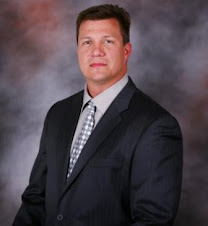I have watched many professional hockey players complain publicly, "I am playing poorly, I just can't seem to score any goals, and I hope that I don't get traded." If an athlete is making these negative statements to the public, imagine what is going on in his or her mind. In effect, we talk ourselves into our ‘goal scoring slumps.' We often focus on what might happen, instead of creating energy around what WILL happen (what you want to happen.)
There is an old parable about a foolish peasant who was sent to visit his master's house. The master brought him into his study and offered him some soup. As the peasant was about to drink it, he noticed a small snake in his bowl. Not wanting to offend his master, he drank it anyway, and within a few days fell so ill that he was brought back to the house.
The master again took the peasant into his study, and prepared some medicine in a small bowl, which he then gave to the peasant. Just as the peasant was about to drink the medicine, he noticed another snake in the bowl. This time he pointed it out, and loudly complained that this was the reason he had become sick in the first place. Roaring with laughter, the master pointed to the ceiling where a large bow was hanging. "It is the reflection of the bow blowing in the wind you are seeing," he said. "There is no snake at all."
The peasant looked again and, sure enough, there was no snake in his bowl, only a reflection. He left the house without taking the medicine and regained his health within the day.
When we put limitations on ourselves, we have swallowed imaginary mental snakes. And they are always real... until we find out otherwise.
Physical preparation to play at the NHL level requires amazing dedication. In fact, today's NHL player is in better shape than players were in previous generations. I recognized early in my NHL career that physical preparation was extremely important, but I also found that if I developed my mental toughness, I would gain a significant edge over players who played hard only when they felt like it. While I was playing professional hockey through two decades, I worked to focus my reading and research on the exact areas that I needed to improve. One of the best compliments that a player can receive from his peers in the game of hockey is, "He comes to play every night!" By working on my "mental muscles," I was ready to play my best, whether I felt like it or not.
Contact Ryan Walter:
Email: ryan@ryanwalter.com
Telephone: 1-866 728-3603
www.ryanwalter.com





No comments:
Post a Comment